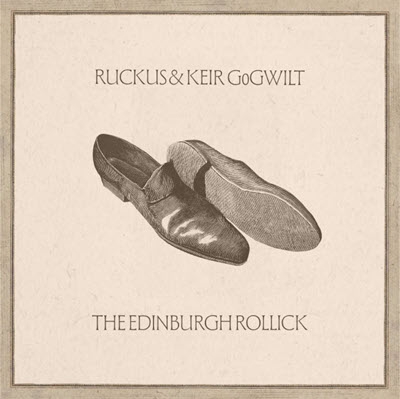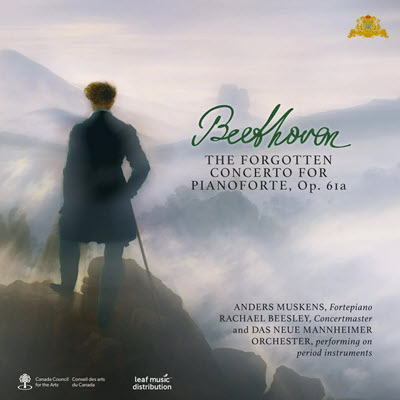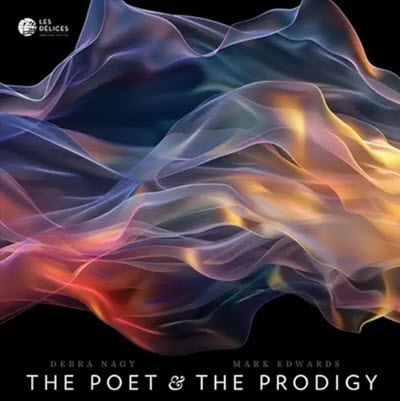by Aaron Keebaugh
Published September 7, 2024
Deep River: Spirituals’ Cross-Currents. Michael Walker II, countertenor. Alchymy Viols, Philip Spray, director. Navona NV6650
The fad for musical crossovers may have run its course. There’s about every combination imaginable these days. Even in the realm of historical performance style, you can find trouvère poems set to shoegaze rock and Beatles songs rendered by a Baroque orchestra.
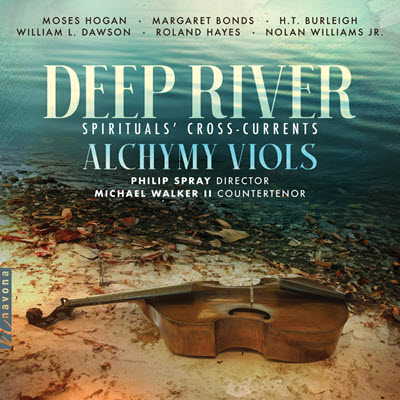
But much more intriguingly, in my view, is what happens when you look at Negro spirituals through the lens of historical performance practice. One compelling answer can be found in Deep River: Spirituals and Cross Currents, the latest album from Alchymy Viols, who treat such repertoire in ways that feel at once familiar and surprising.
In doing so, Alchymy Viols, based in south-central Indiana, finds itself among stellar company. The Boston Camerata has long staged a program titled We’ll Be There, which provides a glimpse into the wider culture of spirituals by leaning into the original source material with folk-flavored panache.
But with Deep River, Alchymy Viols takes more of a cover-band approach, treating arrangements by Harry T. Burleigh, Moses Hogan, and Margaret Bonds, among others, to the serene sounds of a period-instrument ensemble, with additional arrangements by the ensemble’s director, Philip Spray. Bringing it all together is countertenor Michael Walker II, who sonically explores the peaks and valleys of the troubled racial history etched into this repertoire. As Walker writes in his liner notes: “Characterized by invention, ingenuity, and improvisation, Negro Spirituals are the original folk songs of the New World, an oral tradition passed down to provide order amid chaos.”
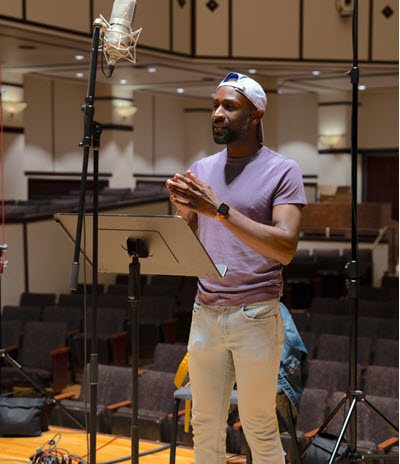
Walker’s voice is like honey on a biscuit: smooth, sweet, and satisfying. But he explores deep emotions with every gesture. Supple scoops and tosses of the voice generate just enough of a bluesy touch. And he can easily work those effects in reverse. In Mose Hogan’s eponymous “Deep River,” Walker’s tone channels glimmers of hope from the dusky harmonies that hover in the strings. Hogan’s “Give Me Jesus,” with its radiant lyricism, feels as close and fervent as a personal prayer. Even the otherwise buttery “My Lord, What a Morning” conveys an almost desperate longing for things to be better than what they are.
Led by Philip Spray, Alchymy Viols walks the wire between sensitivity and down-home zeal. They treat Margaret Bonds’s “Joshua Fit da Battle of Jericho” to a fitting sweep and vigor. Harry Burleigh’s “Hard Trails” feels nimble while retaining its mystery, the musicians never digging in too aggressively. At times, one wants a little more flame from this controlled burn. Nolan Williams Jr.’s “Every Time Feel the Spirit” coursed, but not urgently, as the players avoid tipping into excess.
Elsewhere, their gentle touch is simply heart-warming. The string melodies in “Negro Lullaby,” from Burleigh’s Plantation Melodies, lap like waves over drone basses. Solo harp brings a golden touch to the swift gospel-inflected lilt of Bond’s “Hold On.”
All the while, Walker remains a palpable sonic force. Singing a cappella, he captures the dramatic tensions of Roland Hayes’ “He Never Said a Mumblin’ Word,” where emotions rise and fall as if delivered by a country preacher on a Sunday morning. They do the same in Hayes’ “Plenty Good Room,” which titters joyfully. Burleigh’s “Steal Away” tips this set back towards the shadows as the organ casts a pall over each reverential line. Through it all, Walker reveals a distant tension that longs for deep serenity.
That’s also the effect of Burleigh’s “Sometimes I Feel Like a Motherless Child,” where dissonances stab gently against Walker’s assured line. Earthy drones likewise underscore the darkness of William Levi Dawson’s “Soon Ah Will Be Done.” Walker treats the text with operatic grandeur, stuttering his phrase to beguiling effect when then lyrics tell of “no more weeping.” The singer, this music suggests, is resigned to the pain. And the only resolution comes in the final major chord.
Walker and the ensemble bookend this set by exploring these extremes. The traditional “Over My Head,” sung a cappella, beams through Walker’s pure-toned assurance. “Walk Together Children,” in Hogan’s arrangement, brings it all to a gleeful conclusion. While many of these spirituals may contain the full swells of tremendous sorrow, hope for better days ahead springs eternal.
Aaron Keebaugh has written for Corymbus, The Musical Times, The Classical Review, and The Arts Fuse, for which he serves as a regular Boston critic. He teaches courses in music and history at North Shore Community College in Danvers, Mass. For EMA, he recently reviewed music of the Sephardic diaspora from New York’s East of the River ensemble.

